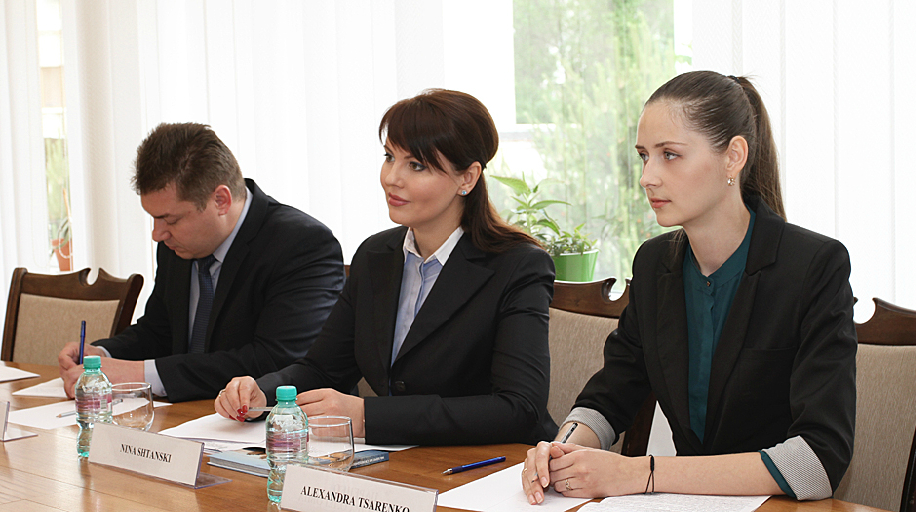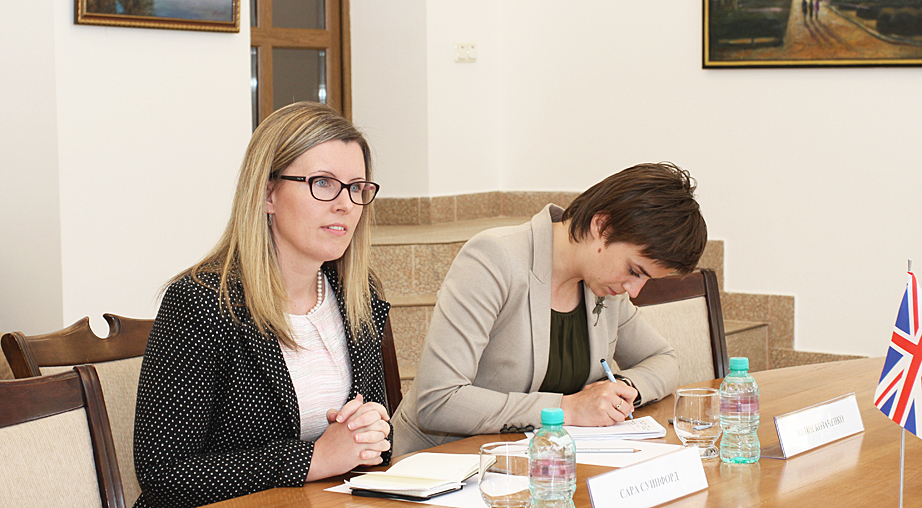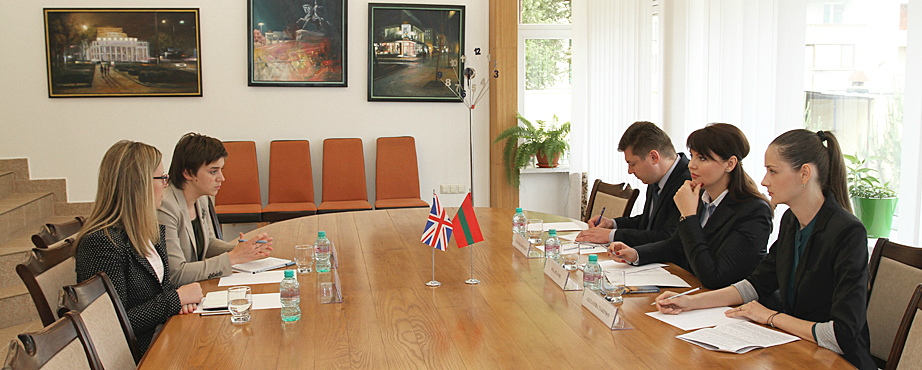On the initiative of the British side the Foreign Ministry hosted a meeting of Nina Shtanski, Deputy Chairperson of the Government of the PMR for International Cooperation, Minister of Foreign Affairs with Sarah Swinford, Head of Department, Eastern Europe and Central Asia Directorate , Foreign and Commonwealth Office.
During the meeting Nina Shtanski noted that the Ministry of Foreign Affairs of the PMR welcomes the intention of the foreign partners to get the firsthand information about Pridnestrovie. “What is important is that Great Britain aims at developing direct contacts and an open exchange of views,” pointed out the Minister.
Nina Shtanski stated with regret that the situation in Pridnestrovie is worsening. “After the blockade launched in 2006 we have managed to restrain the crisis extension, but now we are on the verge of completely new threats. On the one hand we are facing unfriendly Ukrainian actions, on the other hand there are increasing restrictions on the part of Moldova. In addition, the new lever of pressure by Moldova is now the one of the European origin. Under color of new international obligations and the trade regime within the so called DCFTA Moldova is trying to completely cease Pridnestrovian foreign trade,” said the Head of the Foreign Ministry.
“We would like the international society to realize all those risks which the republic is facing now and which are impeding the normal and pragmatically functioning negotiation process,” noted the diplomat.
In her turn, Sarah Swinford informed that after the meetings held earlier with the representatives of the Republic of Moldova and with the Pridnestrovian Speaker Mikhail Burla she fell under a positive impression on the current situation both in the negotiation process and in the whole region. She expressed an opinion that activation of the interparliamentary dialogue would create “a climate of hope”. In this context the diplomat emphasized her commitment to attentively consider the opinion of the Pridnestrovian diplomats on the current events.
“The climate of hope has been here for already 25 years. But I would like this climate of hope to change to the climate of trust. The hope is undoubtedly still maintained because the problems should be resolved at the table of negotiations, but there is no trust, unfortunately. The actions undertaken by our partners signal the absence of the interest in the dialogue. We keep suggesting pragmatic initiatives to the Republic of Moldova that can both improve the climate of hope and strengthen or at least give birth to trust that is extremely necessary,” concluded Nina Shtanski.










